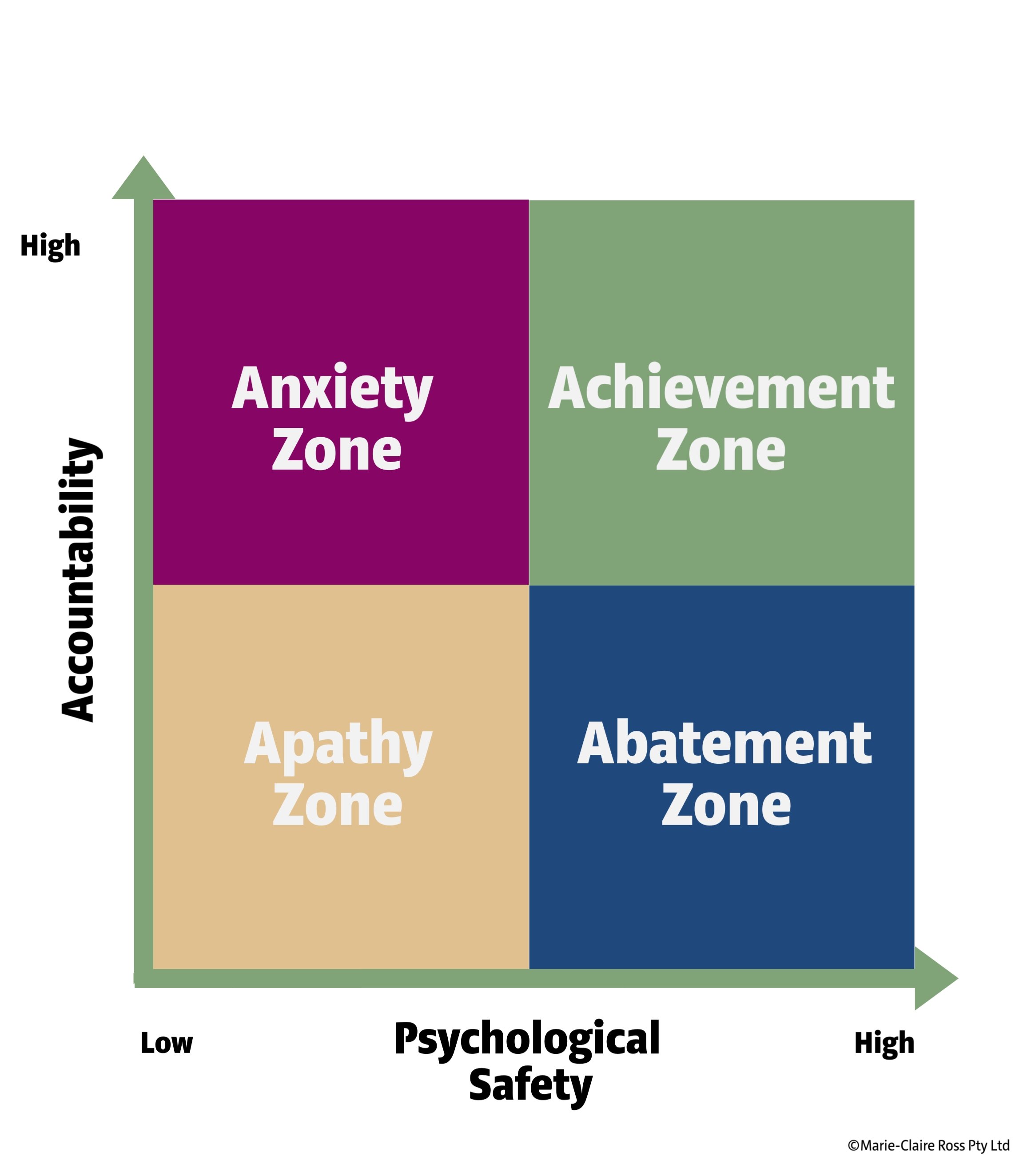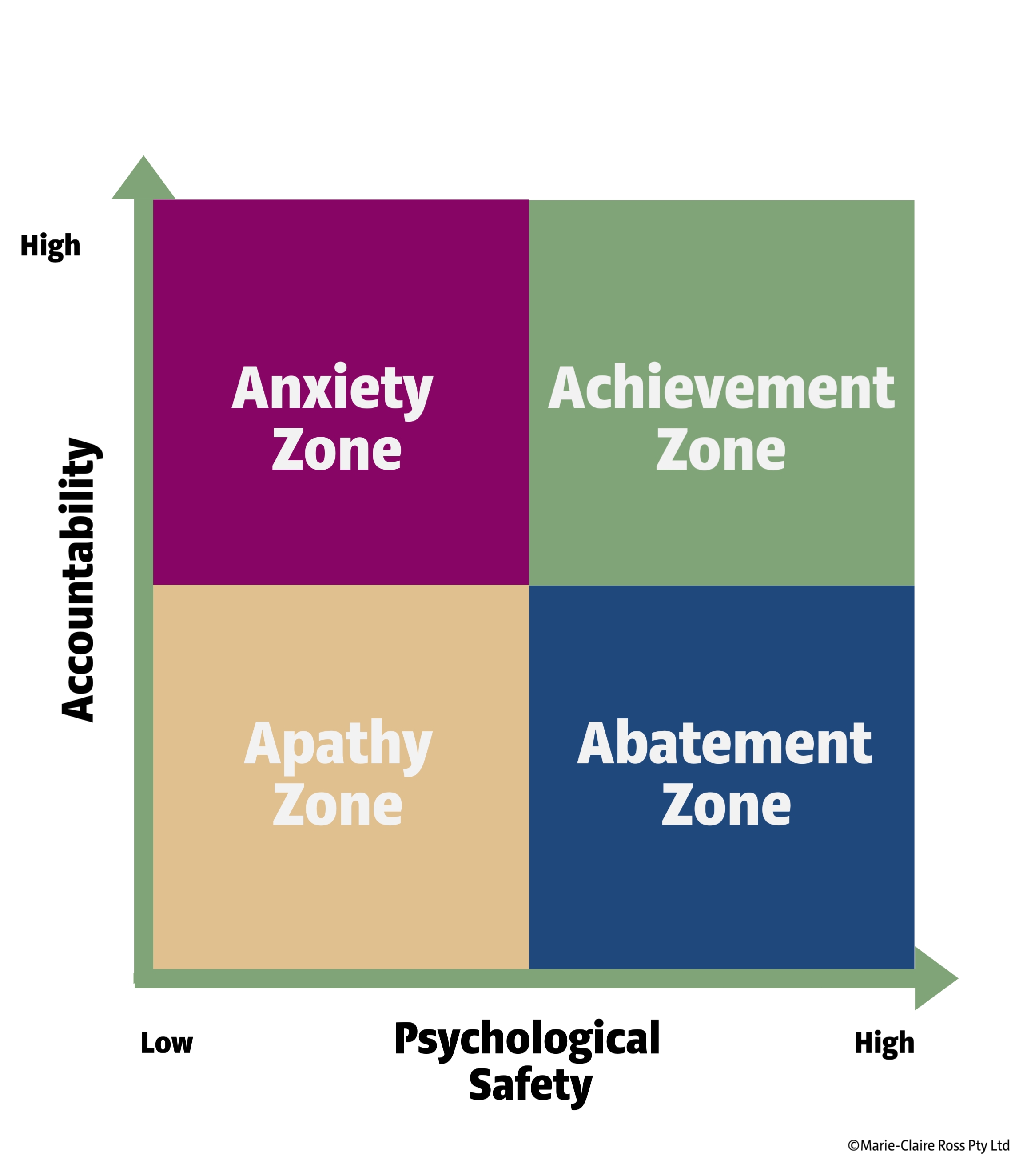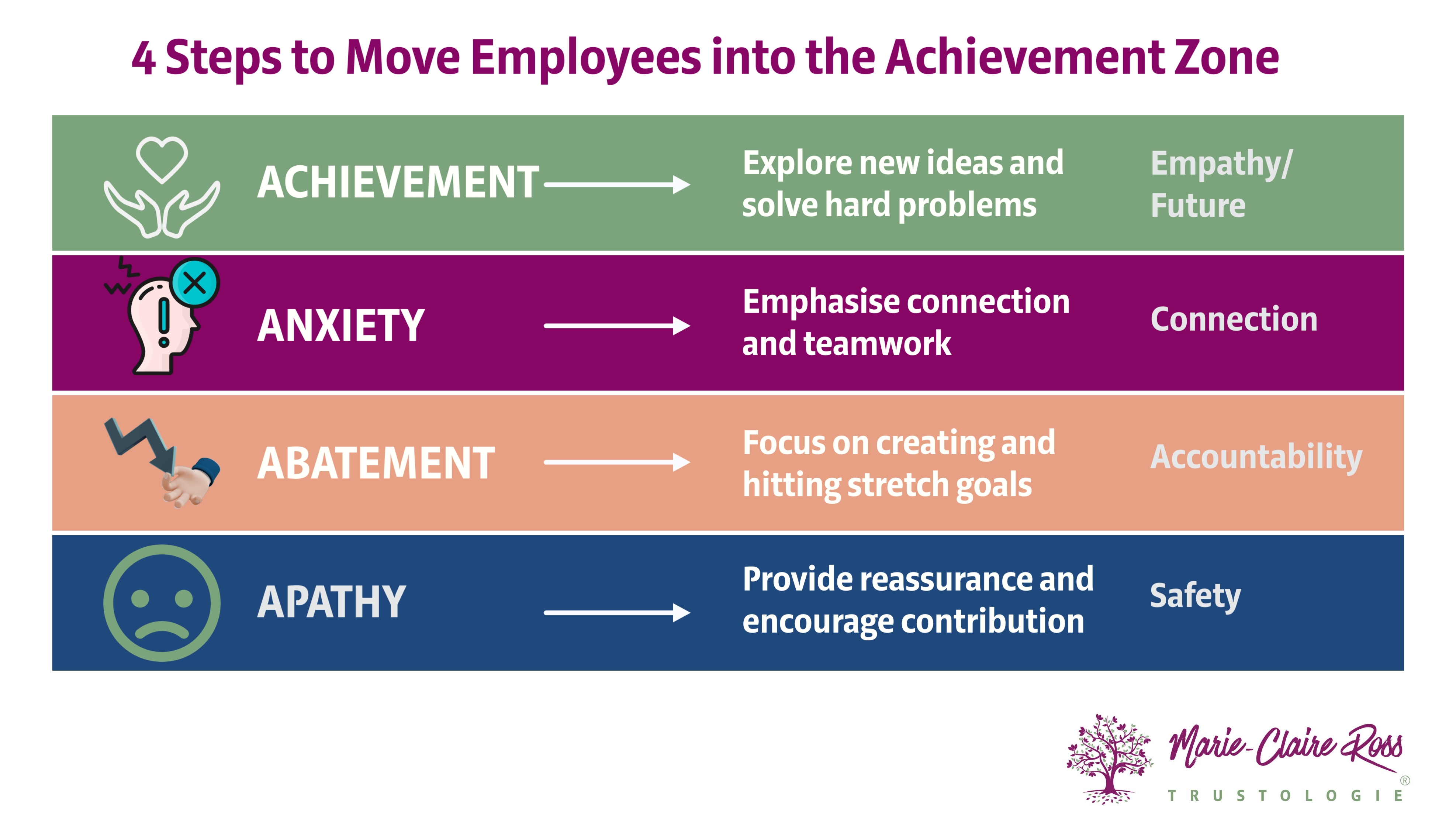9 min read
5 Ways Emotional Intelligence Transforms Your Leadership Presence Today
True leadership presence isn’t a performance or a set of charisma hacks; it is the felt experience of who you are being in the room. By cultivating...
Develop leaders, strengthen executive teams and gain deep insights with assessments designed to accelerate trust and performance.

Transform how your leaders think and perform with keynotes that spark connection, trust and high-performance cultures.

Explore practical tools, thought-leadership and resources to help you build trusted, high-performing teams.

Trustologie® is a leadership development consultancy founded by Marie-Claire Ross, specialising in helping executives and managers build high-trust, high-performing teams.

3 min read
Marie-Claire Ross : Updated on May 1, 2025

In the workplace, we all know the importance of accountability as a leader. Yet, rarely do we talk about how personal responsibility drives accountability.
I often meet leaders who are not being personally responsible (or emotionally mature) in doing the right things both in their personal or professional lives. They allow relationship or financial issues to take up a lot of their bandwidth which impacts their ability to be accountable at work.
When we are leading a team, it is crucial to not only model the right behaviours to our team, but show team members that when things go wrong, that it's safe to be around us. To do that well requires being personally responsible for how we live our personal lives, so that we come to work the best version of ourselves.
In my Achievement Zone model, I discuss how accountability and psychological safety combine to create different zones of team performance. Yet, for a team to be led in the Achievement Zone requires a leader that takes full personal responsibility for how they think, feel, and act.

Accountability and responsibility are terms that get used interchangeably, but they’re actually quite different, especially in leadership and team dynamics.
Accountability is outcome ownership. One person is ultimately answerable for whether something gets done—or not. For example, a leader is accountable for the results of a final report being completed, even if others helped.
Responsibility at work is about the duty to do something or task ownership. It can be shared. Multiple people can be responsible for a task or project. Responsibility is "I'm responsible for preparing the data on the team report."
While personal responsibility involves being fully accountable to your actions, decisions, thoughts and interactions.
Responsibility can be assigned, accepted, or even taken on voluntarily, but this doesn't ensure that personal accountability will follow. Accountability is a decision. Without making that decision, one can be responsible for a task or person, yet still not be accountable for their actions.
To be personally responsible for our actions and decisions requires knowing ourselves better and being accountable for how we show up in the world.
I want you to imagine that you are driving a car on a long, unpredictable road trip.
1. Self-leadership is your hands on the steering wheel. It’s the daily decision to take control of your direction—no one else can steer for you.
2. Trusting yourself is your internal GPS. Even if you hit detours or storms, it’s the quiet voice recalculating your route and reminding you to stay the course.
3. Emotional regulation is your dashboard. When warning lights come on—stress, anger, anxiety—you don’t ignore them or panic. You pause, check under the hood, and respond with care and clarity.
When we are leading a team, it is crucial to not only model the right behaviours to our team, but show team members that when things go wrong, that it's safe to be around us. To do that well requires being personally responsible for how you lead your team.
Let's go into these three areas for personal responsibility in more depth.
Self-leadership is the ability to influence and direct your own thoughts, actions, and behaviours to be the best version of you.
This requires dropping the need for constant validation. It requires not caring about things outside of your control or that distract you from your vision.
Key to this is monitoring the internal stories we tell ourselves about ourselves. Frequently, we tell stories that limit us or remove personal responsibility. We blame others, we deflect or we tell a victim story.
Holocaust survivor and psychologist, Edith Eva Eger said in her memoir, The Choice, "We become victims not because of what happens to us but when we choose to hold on to our victimisation."
When it comes to personal responsibility, we need to tell ourselves more positive, expansive stories of what we can achieve and avoid internalising victim narratives that keeps us small and stuck. It means accepting responsibility for how we lead ourselves, rather than defaulting to making excuses.
The most important person we can trust is ourselves.
Yet, when we go through challenges it often negatively impacts our confidence and self-belief. Trusting that we have the capabilities, skills and intelligence to navigate challenges is one of the most important things we can nurture within ourselves.
Trusting ourselves means being self-aware of our strengths and weaknesses, trusting others and trusting our gut. It means tapping into our deep knowing and being able to modify our reactions and actions.
Emotional regulation is about understanding that we have control of our emotions. Change your emotions, not the condition.
The most important personal responsibility we have is to work on our happiness. To not allow external circumstances or people to distract us from what makes us happy. It means learning to self-soothe and checking in with our emotions and being okay with where we are at. Knowing that every day is a new day where we can work on being in joy. Whether that's savouring a cup coffee, enjoying the work we are doing right now or being thankful for the birds we can hear singing outside our window.
Personal responsibility means you don’t blame the road, the weather, or other drivers. You focus on how you drive—how you show up, respond, and keep moving forward, even in tough terrain.
Great leadership doesn’t start with managing others—it starts with managing yourself.
It is often easy to overlook the link between personal responsibility and accountability.
Yet, leaders can take charge of their impact through self-leadership, self-trust, and emotional regulation.
Steering your own mindset and behaviour sets the tone for your team and shapes performance, even when driving through tough terrain.
When leaders take full ownership of how they think, feel, and act, they create safe, high-performing cultures where accountability thrives.
In a world of shifting demands and high pressure, personal responsibility isn’t just a role—it’s a choice.

9 min read
True leadership presence isn’t a performance or a set of charisma hacks; it is the felt experience of who you are being in the room. By cultivating...

13 min read
As teams return from their summer (or winter) break, you may notice subtle shifts in your team’s energy. Even if the end of year was positive, a new...

14 min read
The workplace is evolving at a pace few previous generations have seen and 2026 will mark a turning point. The Future of Work is blended, not hybrid....

Leading oneself is the foundation upon which effective leadership is built. Without self-leadership, it becomes difficult to inspire and guide others...

Recently, one of the biggest complaints that I have been hearing about leaders is how a lack of self-awareness is impacting their performance....

The most effective leaders don’t just lead teams—they lead themselves first.